2020 (No. 2)
AHEAD Update
Dear AHEAD Colleagues:
Welcome to the latest issue of the AHEAD Update. As always, if you would like to post an item in the next Update, please just send it to us – thanks.
In Memoriam
Dr. Onkabetse George Matlho, 1965 - 2020
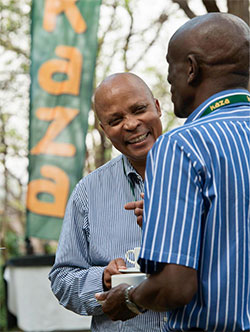
AHEAD has lost a dear friend in Dr. George Matlho, who died after a sudden illness in Gaborone, Botswana on September 25th, 2020.
George earned a Bachelor of Veterinary Science (BVSc) from Massey University (1991), a Master of Preventive Veterinary Medicine (MPVM) from UC Davis (1995), and a Master of Business Administration (MBA) from the University of Botswana (2002). Having served in Botswana’s public service in the Department of Veterinary Services from 1992 to 1996, he was well aware of the challenges the country faced in terms of production and export of beef from FMD endemic zones and how this was crippling the people of his land. Since 2005, George has led the Botswana Vaccine Institute (BVI) as General Manager.
Speaking at his memorial service, the President of Botswana, His Excellency Dr. Mokgweetsi Masisi, described George as a distinguished man who served the nation with honor, and who “hoisted the nation’s flag high.” Known for his humility, sense of humor, and collaborative spirit, George will be missed as both a colleague and friend by many in our network.
"That Side of the Fence"
In a world where livelihood opportunities can be compromised in an instant (eg- COVID-19’s impact on tourism), and where wildlife can represent both a threat and a lifeline, we wanted to share a thought-provoking reflection on both sides of the fence, courtesy of Goodwill "Goodie the Bad" Tlokwe and The Poetvango Collective. This short video is definitely worth watching:
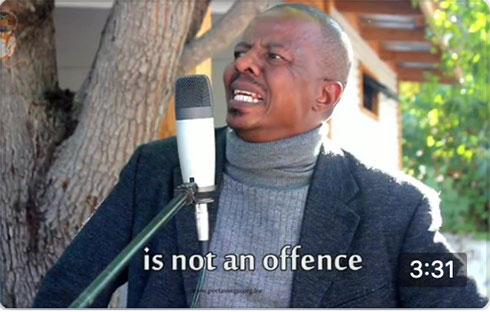
New Resources
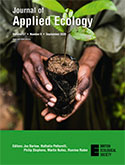
Brennan A, et al. (2020) Characterizing Multispecies Connectivity Across a Transfrontier Conservation Landscape.
Journal of Applied Ecology
Plans for connectivity have largely focused on single species. Using circuit theory and GPS data from six species in the KAZA landscape, this study highlights the importance of evaluating multispecies connectivity when prioritizing areas for conservation.
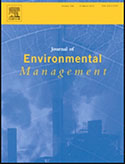
Perkins JS (2019) ‘Only Connect’: Restoring Resilience in the Kalahari Ecosystem.
Journal of Environmental Management
A review of past management measures in conservation landscapes in Botswana, coupled with future climate scenarios, reinforces the need for ecosystem management for resilience at the landscape level, via wildlife corridors and Payments for Ecosystem Services that uplift rural livelihoods.
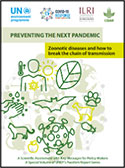
UNEP & ILRI (2020) Preventing the Next Pandemic: Zoonotic Diseases and How to Break the Chain of Transmission.
UNEP Frontiers Special Volume
This report identifies seven trends driving the emergence of zoonotic diseases. It also offers a set of practical recommendations, all based on the One Health approach, that can help policymakers minimize the risk of future disease outbreaks.

Life After COVID: The Optimist’s Guide to a Post-Pandemic World.
Podcast
This podcast interview with AHEAD’s Steve Osofsky focuses on questions our pandemic predicament makes unavoidable, and on the value of using a One Health / Planetary Health lens to inform our answers.
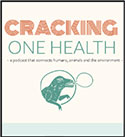
Cracking One Health.
Podcast
In this podcast interview, Steve provides a personal perspective on One Health work in southern Africa, and on the origins of the One Health movement.
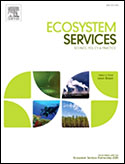
May R, et al. (2019) Servicescape of the Greater Serengeti-Mara Ecosystem:
Visualizing the Linkages Between Land Use, Biodiversity and the Delivery of Wildlife-Related Ecosystem Services.
Ecosystem Services
The authors assess the ecosystem service trade-offs between nature-based tourism, legal trophy hunting, illegal bushmeat hunting and livestock depredation, as well as between biodiversity and human welfare in the Greater Serengeti-Mara Ecosystem.
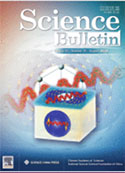
Sun J, et al. (2020) Reconsidering the Efficiency of Grazing Exclusion Fences on the Tibetan Plateau.
Science Bulletin
Through comprehensive assessment, the authors examine the effects of grazing exclusion fencing on ecosystem processes, livestock carrying capacity, wildlife habitat and herders’ livelihoods in the Tibetan Plateau.
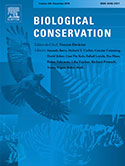
Weise FJ, et al. (2019) Seasonal Selection of Key Resources by Cattle in a Mixed Savannah-Wetland Ecosystem Increases the Potential for Conflict with Lions.
Biological Conservation
Using GPS devices to track cattle and lion locations in the northern Okavango Delta, this research suggests reducing depredation by lions will best be achieved using a combination of resource- and predation-cognizant seasonal herding strategies, combined with penning at night.
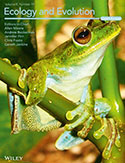
Kissui BM, et al. (2019) Patterns of Livestock Depredation and Cost‐Effectiveness of Fortified Livestock Enclosures in Northern Tanzania.
Ecology and Evolution
This analysis provides further evidence that livestock enclosure fortification is a cost‐effective strategy to promote coexistence of carnivores and people.
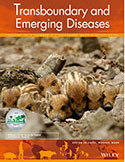
Hlokwe TM, et al. (2019) First Detection of Mycobacterium bovis Infection in Giraffe (Giraffa camelopardalis) in the Greater Kruger National Park Complex: Role and Implications.
Transboundary and Emerging Diseases
The identification of M. bovis in free-ranging giraffe in South Africa highlights the ongoing spread of bovine TB between species and the need for regular wildlife disease surveillance for the timely identification of new pathogens or strains in landscapes of high conservation value.

Roos E (2019) Why Warthogs Are Useful in Figuring Out How Bovine TB Spreads.
The Conversation
The author discusses recent research on BTB and African wildlife, and suggests warthogs might serve as useful disease sentinels.
Upcoming Meetings
International Conference on Human-Wildlife Conflict and Coexistence Postponed to early/mid 2021, Oxford, UK
Co-hosted by the IUCN Species Survival Commission Human-Wildlife Conflict Task Force, the Global Environment Facility-funded and World Bank-led Global Wildlife Program, and the Wildlife Conservation Research Unit at Oxford University, this conference will bring together governments, NGOs, intergovernmental organizations, academics, the business sector, and indigenous and local communities to discuss and debate insights and solutions for human-wildlife conflict management.
6th World One Health Congress Virtual edition 30 Oct-3 Nov 2020
Co-organized by the One Health Platform, the University of Edinburgh, Africa CDC, and the Southern African Centre for Infectious Disease Surveillance, this year’s Congress will go virtual. More than 250 lectures will be released online at set times, with programming centered around One Health, Antimicrobial Agents & Resistance, the Science Policy Interface, and COVID 19; with additional Special Partner Sessions and Keynote Lectures.
Training & Funding Opportunities
BIOPAMA – Rapid Response Grants 2020
These Rapid Response Grants are focused on increasing the resilience of protected areas and local communities facing the risks and difficulties of the global COVID-19 pandemic in African, Caribbean and Pacific countries. Applications are open to eligible organizations on a rolling basis until 31 December 2020. Applications will be processed as they are received, with a decision made within 6 weeks of receipt of a proposal.
Again, if you have items for the next AHEAD Update, please just let us know – thanks.
Yours in conservation and development,
Steve & Shirley
Steve Osofsky, DVM
Cornell University, College of Veterinary Medicine
Jay Hyman Professor of Wildlife Health & Health Policy
AHEAD Program Coordinator
s.osofsky@cornell.edu
Shirley Atkinson, MSc
Cornell University, College of Veterinary Medicine
Assistant Director, Wildlife Health & Health Policy
AHEAD Regional Coordinator
s.atkinson@cornell.edu
What is AHEAD?
AHEAD works to create enabling environments that allow different and often competing sectors to literally come to the same table and find collaborative ways forward to address challenges at the interface of wildlife health, livestock health, and human health and livelihoods. We convene stakeholders and provide technical support and resources for projects locally identified as priorities. AHEAD, one of the first applied One Health programs, recognizes the need to look at health, disease, and the environment together, while always taking a given region's socioeconomic, political, and policy context into account.